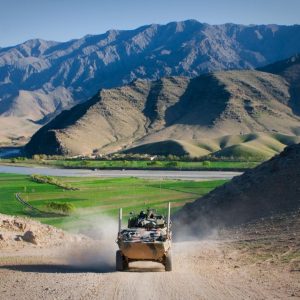The Stream, May 9: U.S. To Decide On Paris Climate Accord
The Global Rundown
U.S. President Donald Trump is set to consider the country’s future participation in the Paris climate agreement. A new report urges Australia and New Zealand to open their doors to the citizens of Pacific Island nations affected by climate change. Poor water quality, caused by years of conflict, is behind a deadly cholera outbreak in Yemen. The scientific advisory board that oversees the U.S. Environmental Protection Agency may see an influx of industry-friendly members. New York communities hope new water infrastructure investments will combat years of nitrogen pollution. The Veladero mine in Argentina could face sanctions for cyanide spills.
“What we have been doing for decades is just managing the decline of water quality. Every water body is listed as impaired. We have dead rivers, closed beaches, harmful algal blooms.” –Steven Bellone, the executive of Suffolk County, New York, where nitrogen pollution from septic tanks threatens groundwater quality, rivers, and bays. New York’s government last month approved a $2.5 billion investment for local water infrastructure improvements across the state. (The New York Times)
In context: Read Circle of Blue’s award-winning series on failing septic systems in the United States.
By The Numbers
69 percent Proportion of registered U.S. voters who believe the country should take part in the Paris climate accord, according to a survey released by the Yale Project on Climate Change Communications. President Donald Trump is expected to decide today whether the United States will honor the global agreement to curb carbon emissions. Yale Environment 360
In context: How water firmly staked a spot in the global climate agenda.
25 people Number killed this week by an outbreak of cholera in Yemen, where World Health Organization officials blame the deteriorating water quality wrought by two years of war. Reuters
9 members of the scientific advisory board overseeing the U.S. Environmental Protection Agency will not have their terms renewed. The remaining members of the board warn the agency’s research will lose credibility if the advisory positions are instead filled with industry representatives. Guardian
Science, Studies, And Reports
A new World Bank report suggests Australia and New Zealand should open their doors to citizens of Kiribati and Tuvalu, allowing them to freely relocate or seek work. Such a program would help the two Pacific Island nations manage the fallout from rising sea levels and climate change, which create a “new moral imperative for providing open access,” according to the report. Guardian
On The Radar
A judge in Argentina says mining company Barrick Gold may face sanctions for failing to complete required improvements to reduce cyanide spills at its Veladero mine. The sanctions could include fines or restrictions on the mine’s operation. Reuters
A news correspondent for Circle of Blue based out of Hawaii. She writes The Stream, Circle of Blue’s daily digest of international water news trends. Her interests include food security, ecology and the Great Lakes.
Contact Codi Kozacek




